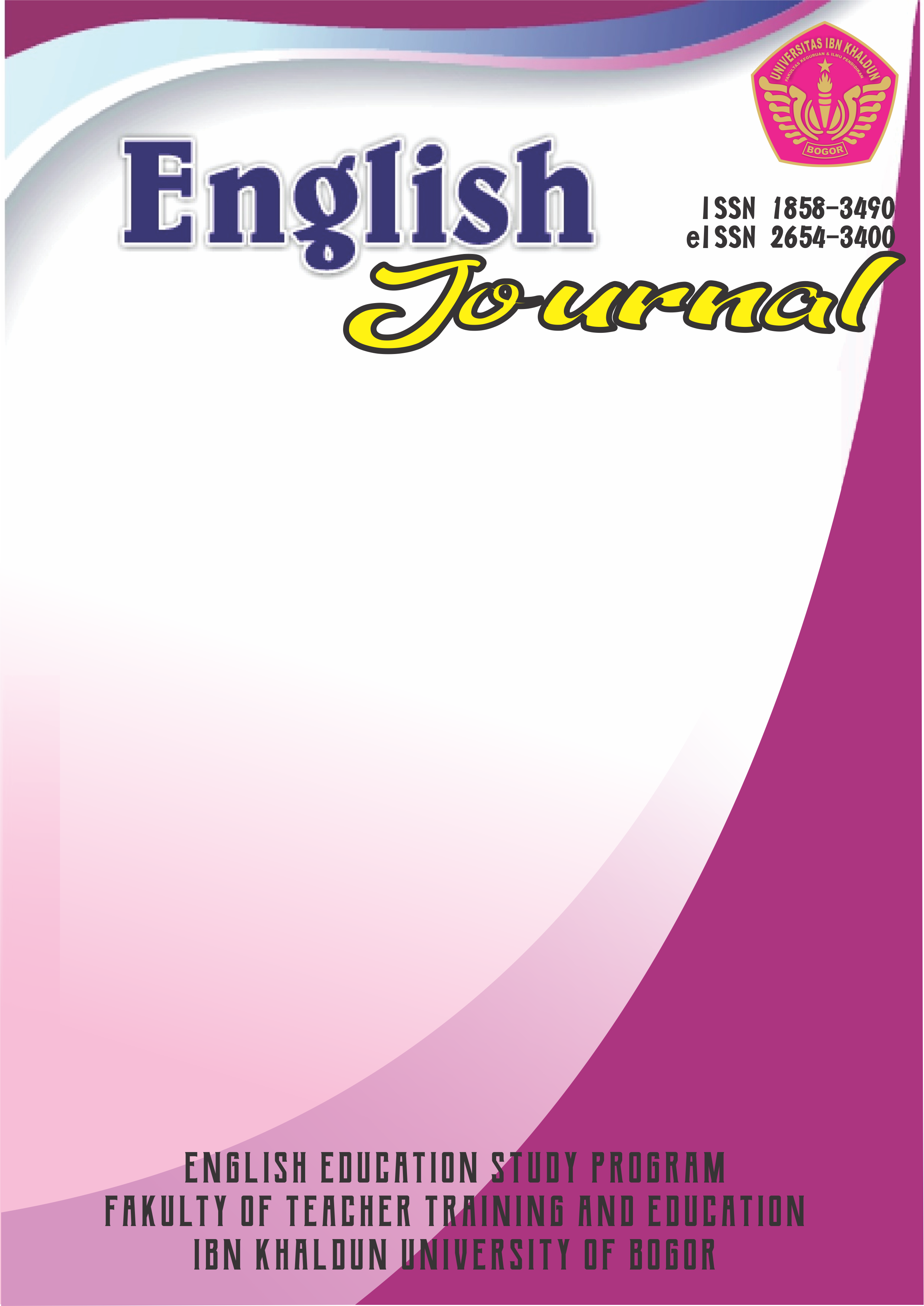RELEVANCY THE COMPONENTS OF THE ENGLISH LESSON PLAN
DOI:
https://doi.org/10.32832/english.v12i2.3772Abstract
Harmer (2007, p.156) said that "For teachers, plan gives the lesson a framework, an overall shape”. It means that lesson plan guiding teachers to convey the teaching-learning activities. Teachers' competence in designing lesson is essential in order to plan the strategy to improve the quality of teaching learning activity. Relevancy of lesson plans to the regulation issued by government needed in order to gain the goals of National Education. Permendikbud No. 22 Tahun 2016 is issued by Indonesian government to regulate the Standar Proses. The regulation mentions components of lesson plan based on 2013 curriculum to lead teachers in designing lesson plan. A school supervisor as the researcher has a task to observe and study teacher lesson plans whether it is relevant or not. She collected the data from ten English teacher lesson plans then analyse the relevancy and interviewed teachers to confirm the findings. The result of document analysis revealed that all lesson plans mentioned every components of lesson plans which are indicators and basic competences, objectives, materials, method, media, activities, and assessment; but when it was analysed based on the principles of each component based on Permendikbud Nomor 22 Tahun 2016 the quality of each components were varies. The result of the research showed that the lesson plans made by English teacher consisted all complements completely based on 2013 curriculum but there were some components of lesson plan were not relevant. The material sources and activity (opening, core and closing activity) were relevant; almost all lesson plans mentioned well. The component with the lowest relevant were indicator and assessment. In indicator components, most of the teachers did not know how to differentiate operational verb of cognitive and psychomotor domain and in assessment component; most of lesson plans did not stated character instrument and assessing rubric for psychomotor skill (writing and speaking skill).References
Brown, H. D. (2001). Teaching by principles: An interactive approach to language pedagogy. New York: Longman.
Fraenkel, J. R., Wallen, N. E., & Hyun, H. H. (2012). How to design and evaluative research in education. New York: Mc-Graw-Hill.
Gibson, Wiliam & Brown, Andrew (2009). Brown Working with qualitative data. Los Angeles: SAGE Published Ltd.
Harmer, J. (2007). How to Teach English. Malaysia: Longman.
Harmer, J. (2012). Teacher Knowledge. First published China: Person Education limited.
Nunan, D. (1991). Language Teaching Methodology: A Text book for Teachers. Englewood Cliffs, NJ: Prentice
Hall Inc.
Nunan, D., & Bailey, K. M. (2009). Exploring second language classroom
research: A comprehensible guide. Boston: Heinle, Cengage learning.
Unumeri, G. O. (2009). Perception and conflict. Lagos, Nigeria: National Open University of Nigeria.
Ur, P. (2000). A Course in Language Teaching: Practice and Theory. Beijing: Foreign Language Teaching and
Research Press.
Weddel, K. S. (2008). ESL teacher language (teacher talk) for effective classroom
interactions. Colorado: Nothern Colorado Professional Development Center.
Willis, J. D. (1990) The Lexical Syllabus. London: Collins COBUILD.
Young, K. M. (2014). An analysis of interaction patterns in elementary
English classes, Journal of the Korea English Education Society. Retrieved September 4, 2017, from
--- Permendikbud No. 22 Tahun 2016 Tentang Standar Proses Pendidikan Dasar dan Menengah
.
--- Permendikbud Nomor 81A Tahun 2013 Tentang Implementasi Kurikulum 2013
--- Permendikbud Nomor 103 tahun 2014 tentang Pedoman Pelaksanaan Pembelajaran

















1.png)




